Intro
Combat the flu with 5 essential symptom tips, including fever reduction, cough relief, and congestion management, to help alleviate influenza symptoms and support immune system recovery.
The flu season is upon us, and it's essential to be aware of the symptoms and take necessary precautions to prevent the spread of the disease. The flu, also known as influenza, is a contagious respiratory illness caused by the influenza virus. It can cause mild to severe illness, and in some cases, it can lead to complications such as pneumonia, bronchitis, and sinus infections. In this article, we will discuss five flu symptom tips that can help you identify and manage the symptoms of the flu.
The flu symptoms can vary from person to person, but common symptoms include fever, cough, sore throat, runny or stuffy nose, headache, fatigue, and muscle or body aches. If you experience any of these symptoms, it's crucial to seek medical attention immediately. Early treatment can help alleviate symptoms, reduce the risk of complications, and prevent the spread of the disease to others.
The flu can affect anyone, regardless of age or health status. However, certain groups of people are more susceptible to the flu, including older adults, young children, pregnant women, and people with certain chronic health conditions. If you belong to any of these groups, it's essential to take extra precautions to prevent the flu, such as getting vaccinated, practicing good hygiene, and avoiding close contact with people who are sick.
Understanding Flu Symptoms
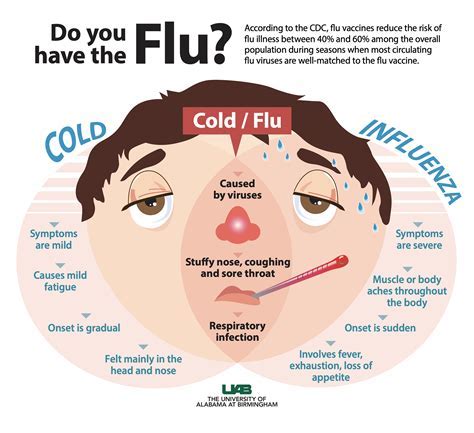
Types of Flu
There are three types of flu: A, B, and C. Type A flu is the most common and can cause severe illness. Type B flu is less common but can still cause significant illness. Type C flu is the mildest and is often associated with mild symptoms. It's essential to understand the type of flu you have to determine the best course of treatment.Managing Flu Symptoms

Flu Treatment Options
There are several flu treatment options available, including antiviral medications, antibiotics, and hospitalization. Antiviral medications such as oseltamivir and zanamivir can help alleviate symptoms and reduce the risk of complications. Antibiotics may be prescribed if you develop a secondary bacterial infection such as pneumonia or bronchitis. In severe cases, hospitalization may be necessary to provide supportive care and monitor your condition.Preventing the Flu
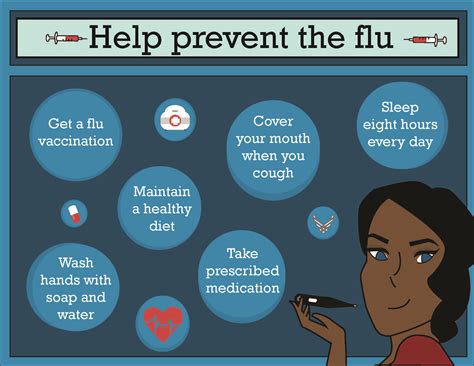
Flu Vaccination
Flu vaccination is the most effective way to prevent the flu. The flu vaccine is available in two forms: the injectable vaccine and the nasal spray vaccine. The injectable vaccine is suitable for people aged 6 months and older, while the nasal spray vaccine is suitable for people aged 2-49 years. It's essential to get vaccinated every year to protect yourself and others from the flu.Complications of the Flu
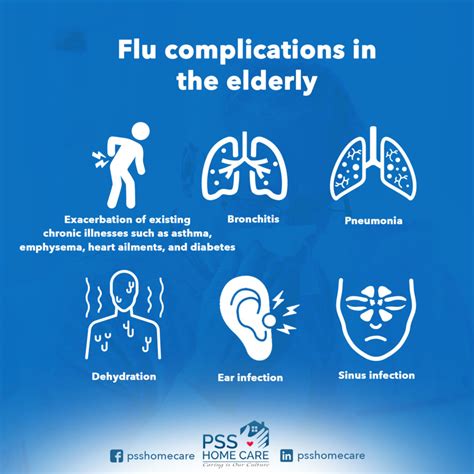
Risk Factors for Complications
Certain groups of people are more susceptible to complications from the flu, including older adults, young children, pregnant women, and people with certain chronic health conditions. If you belong to any of these groups, it's essential to take extra precautions to prevent the flu, such as getting vaccinated, practicing good hygiene, and avoiding close contact with people who are sick.Flu Symptoms in Children
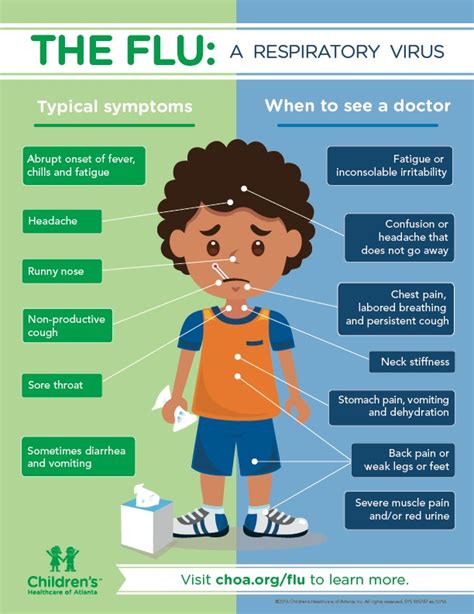
Managing Flu Symptoms in Children
Managing flu symptoms in children requires a combination of self-care and medical treatment. You can help alleviate your child's symptoms by giving them plenty of fluids, such as water, clear broth, or electrolyte-rich beverages like Pedialyte. You can also give them over-the-counter medications such as acetaminophen or ibuprofen to reduce fever and relieve pain. However, it's essential to follow the instructions carefully and consult with your doctor before giving your child any medication.Flu Symptoms in Older Adults
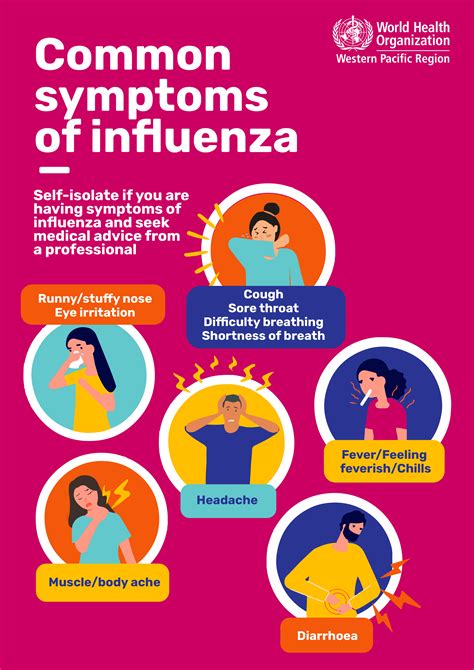
Managing Flu Symptoms in Older Adults
Managing flu symptoms in older adults requires a combination of self-care and medical treatment. You can help alleviate symptoms by giving them plenty of fluids, such as water, clear broth, or electrolyte-rich beverages like sports drinks. You can also give them over-the-counter medications such as acetaminophen or ibuprofen to reduce fever and relieve pain. However, it's essential to follow the instructions carefully and consult with your doctor before giving them any medication.What are the common symptoms of the flu?
+The common symptoms of the flu include fever, cough, sore throat, runny or stuffy nose, headache, fatigue, and muscle or body aches.
How can I prevent the flu?
+You can prevent the flu by getting vaccinated every year, washing your hands frequently with soap and water, avoiding close contact with people who are sick, and avoiding touching your eyes, nose, and mouth.
What are the complications of the flu?
+The complications of the flu include pneumonia, bronchitis, sinus infections, and ear infections. Certain groups of people, such as older adults, young children, pregnant women, and people with certain chronic health conditions, are more susceptible to these complications.
In summary, the flu is a contagious respiratory illness that can cause mild to severe illness. Understanding flu symptoms, managing flu symptoms, preventing the flu, and being aware of the complications of the flu are essential in protecting yourself and others from the disease. By following the tips outlined in this article, you can help reduce the risk of getting the flu and alleviate symptoms if you do get sick. If you have any questions or concerns about the flu, please don't hesitate to reach out to your healthcare provider. Share this article with your friends and family to help spread awareness about the flu and how to prevent it.
